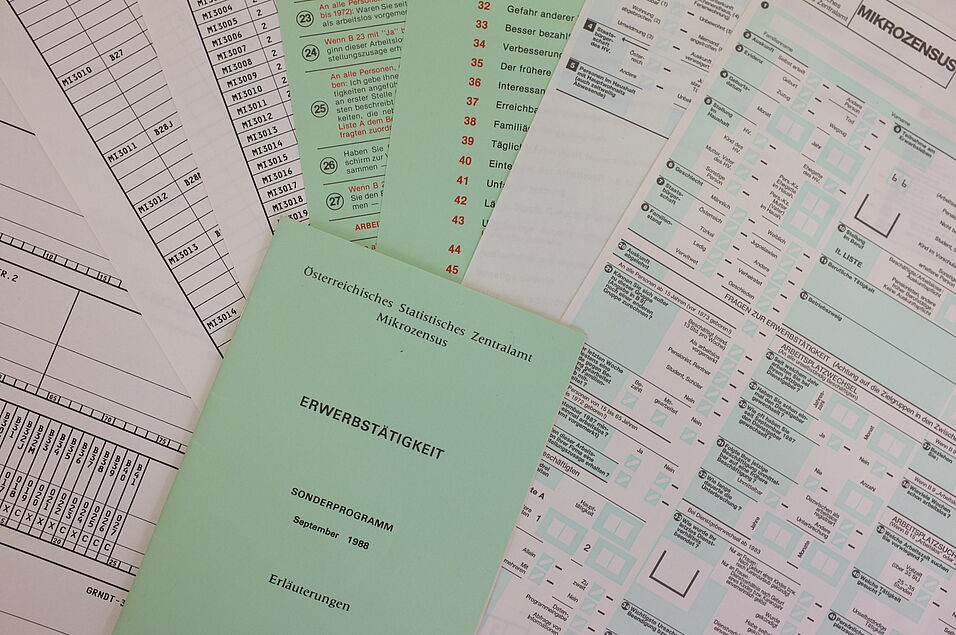Microcensus
The Austrian Microcensus is the biggest sample survey of the Austrian population and is carried out by Statistics Austria. The primary sampling units are households and within each household, all persons are surveyed. About 22.500 households totalling 65.000 persons are interviewed quarterly. In addition to its standard questions, the Microcensus includes questions covering specific topics. The main fields of interest are the topics employment and housing. Since 1995 the Microcensus has been part of the EU Labor Force Survey (EU-LFS).
Historical data formats
Until the beginning of the 1990s, the Microcensus was processed on mainframe computers, making it impossible to use with today’s common statistical software. These datasets have to be converted from a binary format (EBCDIC) to modern data formats. A syntax file is created from the – sometimes handwritten – data record description, which then processes the binary information and generates an SPSS data file.
The Microcensus at AUSSDA
AUSSDA offers Microcensus data covering the years from 1970 to 2003 free of charge for scientific use. Some of the old datasets are not yet available in the SPSS format, as the conversion process is extremely time consuming. We therefore convert these datasets only upon request. The following Microcensus datasets are now available:
- MZ7604: Physical Disabilities
- MZ7702: Residential Mobility
- MZ8803: Employment
- MZ9303: Questions on Housing
The available Microcensus data at AUSSDA can be combined with additional Microcensus data from Statistics Austria to generate time-series analyses on social change. Because of the large sample size, the Microcensus is suitable to study subpopulations or to analyze on a low geographical aggregation level.
We will gladly transform binary datasets into modern data formats (SPSS, Stata, R, etc.). Simply contact us for your data requests!


